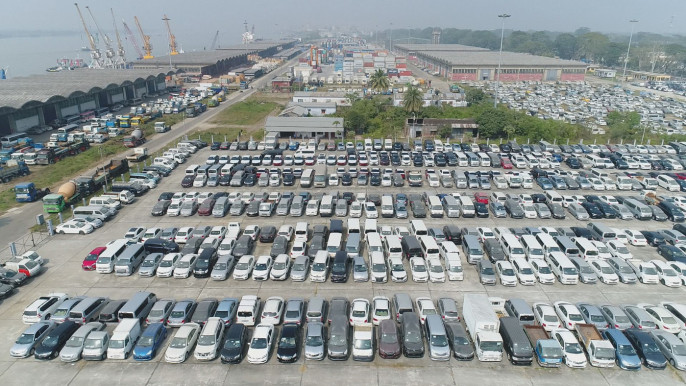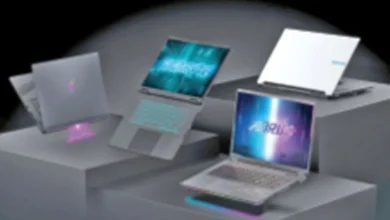Why we are so heavily dependent on old Japanese cars
Since the 1980s, used Japanese cars have been dominating the automobile market in Bangladesh. However, in 2021, the government formulated the Automobile Industry Development Policy, to help the local automobile industry grow and bring down the price of cars

Park Young-sik, the South Korean ambassador to Bangladesh, recently said that Bangladesh needs to pay more attention to encourage domestic production, cutting the dependence on imports of reconditioned second-hand cars.
“Bangladesh should cut dependency on imported second-hand cars. Domestically made cars will also be good for the environment,” he told reporters while visiting the Fair Technology-Hyundai factory at the Bangabandhu Hi-Tech Park on 16 September.
The South Korean ambassador added that many countries have already stopped importing old cars and Bangladesh can also adopt a similar policy.
According to business insiders, on an average, the annual sales of private cars in Bangladesh is around 30,000 units. In 2022, 26,935 private cars and SUVs were registered under BRTA.
Of them, the share of second-hand cars is 70 percent, while the remaining 30 percent is brand new cars.
Why the persisting dependence on used Japanese cars?
Since the 1980s, used Japanese cars, mainly Toyota, have been dominating the automobile market in Bangladesh. Most cars on the roads belong to Toyota, and consumers find it the most trustworthy among all the other brands.
In fact, one of the main reasons why Japanese cars became so popular was because of their good performance and wide availability of their spare parts. Local mechanics too find it easier to repair a Toyota car. A large number of these mechanics and garage owners have learned to fix these cars, which is why their livelihood also depends on Toyota.
However, Executive Director of Rancon Group Mostafizur Rashid Bhuiyan said, “our dependency on old Japanese vehicles was created due to our government’s policy, nothing else. The government created the policy so we would import these vehicles.”
“The government probably thought that if we import reconditioned cars, we would have to spend less foreign currency and so, people would get a vehicle at a low price,” he said.
The main markets for Japanese old cars are Bangladesh, the African continent and Russia. In the past, Bangladesh allowed importers to bring cars used for no more than eight years, and the price was low.
Now, the government no longer allows the import of old vehicles used for more than five years. As a result, the price of old cars has gone up in Japan and this is why Bangladesh has to import these at a higher price.
“We have seen nowadays that the price of many old Japanese vehicles is much higher than that of a brand new car (imported),” said Mostafizur.
The benefit of a brand-new car is that one can get a guarantee of five years and two years of free service. The vehicle also has better emission.
He said that there is no doubt that old vehicles emit more carbon than new ones, and carbon emission is 30 percent more than that of a new vehicle.
“Now our economy is developing and our purchasing power is also increasing, which is leading to higher demand for vehicles,” he said, adding, “but Bangladesh’s dependence on old Japanese vehicles is causing it to lag behind in the automobile industry.”
Bangladesh wants to spur the automobile industry
Bangladesh formulated the Automobile Industry Development Policy 2021 to help grow the local automobile industry so that people can buy cars at a low price. Industry leaders said that if we can establish the local industry, we will be able to reduce our dependence on old Japanese cars.
To do so, the government is encouraging foreign and local companies to set up semi-knocked-down (SKD) and completely knocked-down (CKD) plants. Basically, these are automobile assembling plants.
But a huge amount of investment is needed to set up these plants.
“China has invested Tk14,000 crore in Mirsarai to manufacture electric vehicles. If the Japanese companies invest Tk5,000 crore to Tk10,000 crore to manufacture vehicles in Bangladesh, then the government will provide support,” said Abdul Matlub Ahmad, president of Bangladesh Automobiles Assemblers and Manufacturers Association (BAAMA).
He said, “But we will need big companies to come forward. But we want to manufacture automobiles in our own country. Most countries around the world are now discouraging the import of reconditioned cars, including our government.”
“If we look at the Automobile Industry Development Policy 2021, it clearly states that reconditioned vehicles will be phased out slowly,” said Abdul Matlub, who is also the chairman of Nitol Niloy Group.
“Most of our customers buy Japanese cars. But where is the Japanese investment in this sector? We cannot stop the import of old Japanese cars according to the WTO. We can only discourage it.”|
He said that now, the government is discouraging the import of Japanese cars with high taxes and with a 100 percent margin in opening LC.
“What is the impact? The price of cars is increasing. For the time being, there is no alternative other than importing old Japanese cars,” he said.
He said that we will have to make sure that people can buy a brand-new car for Tk15 to Tk20 lakh. And this can only happen only when factories are set up in Bangladesh.
He said that the first thing that we need is an automobile industry in the country, especially one for electric cars.
“If no one makes investments, the government cannot reduce the import of the reconditioned vehicles,” he opined.
“If we want to export vehicles, then we will have to manufacture electric vehicles or Toyota.”
Abdul Matlub said that neighbouring countries like India and Vietnam have been making their own vehicles. Only Bangladesh cannot do so because the reconditioned vehicles are cheap but they also run like new ones.
“The government will have to assure the investors that if you invest in the country, we will reduce the dependence on imported old Japanese cars. The government will decide what to do about the import.”
Old car importers want fair competition
Importers of old Japanese cars see the government initiative of letting companies set up automobile assembling factories as a way of creating a monopoly. They said Bangladesh should set up factories for Completely Built Units (CBU).
Abdul Haque, former president of Bangladesh Reconditioned Vehicles Importers and Dealers Association said that they always welcome the government’s move to set up an automobile industry in the country. But he added that the government should take into consideration the potential market and do a feasibility study.
According to a 2021 study by Policy Research Institute (PRI), many countries including Malaysia failed to set up an automobile industry.
Abdul Haque said that the South Korean Ambassador made the comment mainly because they have an assembling plant in Gazipur. But that alone can’t make an industry.
“It is basically a ‘screwdriver industry’ because it is an assembling factory,” he said. “They are bringing in the parts from Korea and maybe doing the painting in Bangladesh.”
He said they [used car importers] pay nearly double the tax for an old vehicle imported from Japan.
“We want fair competition, stopping the import of old vehicles and making new vehicles in the country will create a monopoly. And no country in the world has succeeded in doing so. The old vehicle sector will suffer from this policy.”
The need for a local industry
Transport expert Professor Shamsul Hoque said that old Japanese vehicles are popular in Bangladesh and also around the world because they are dependable and durable. They have a good resale value too.
“So, if I am an owner of a vehicle whose resale value does not come down and it lasts for a long time, why won’t I use it?”
However, he said that the carbon emission of a vehicle depends on how it is maintained. “We do not have the habit of maintenance in Bangladesh. There is no point in blaming the vehicles.”
“In our country, we still sell polluted fuel and there is no clean fuel. We have to focus on this issue,” said the professor. “If you use this fuel in a new vehicle, the new vehicle will also create pollution.”
But he agrees that we should reduce our dependence on imported old Japanese vehicles. If factories are built in Bangladesh, the country will save on foreign currency. Moreover, it will create new jobs.
“We always focus on branding our country, but we do that through the RMG sector. Although it is boosting the economy, it does not contribute much to building a brand image for Bangladesh. If we really want to build a brand image for Bangladesh, then the automobile sector can be one,” he said.







